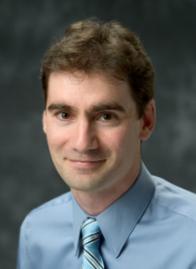
Matthew DeLisa received his B.S. in Chemical Engineering from the University of Connecticut in 1996; his Ph.D. in Chemical Engineering from the University of Maryland in 2001; and did postdoctoral work at the University of Texas-Austin, Department of Chemical Engineering. DeLisa joined the Department of Chemical and Biomolecular Engineering at Cornell University as an assistant professor in 2003 and was promoted to associate professor in 2009. He recently served as a Gastprofessur at ETH Zürich in the Institut für Mikrobiologie.
Professor DeLisa's research focuses on understanding and controlling the molecular mechanisms underlying protein biogenesis -- folding and assembly, membrane translocation and post-translational modifications -- in the complex environment of a living cell. His contributions to science and engineering include the invention of numerous commercially important technologies for facilitating the discovery, design and manufacturing of human drugs and seminal discoveries in the areas of cellular protein folding and protein translocation. DeLisa has received several awards for his work including an NSF CAREER award, a NYSTAR Watson Young Investigator award, a Beckman Foundation Young Investigator award, an Office of Naval Research Young Investigator award, and a NYSTAR Distinguished Faculty Award. He was also named one of the top 35 young innovators (TR35) by MIT's Technology Review in 2005 and was selected as the inaugural recipient of the Wiley-Blackwell Biotechnology and Bioengineering Daniel I.C. Wang award, which honors a distinguished young researcher in this field. Most recently, he was honored with a Cornell Provost's Award for Distinguished Scholarship and was the recipient of the Young Investigator Award from the American Chemical Society's BIOT division.
